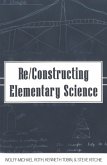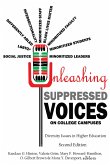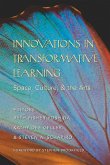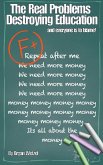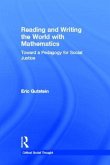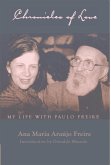This book offers a critique of two major themes of the modern reform movement in mathematics education: problem solving and the applications of mathematics to the "real world". In examining the educational fallacy inherent in the impulse to move unflinchingly from "problem" to "problem solving", Stephen I. Brown demonstrates the potential of mathematical reflection to reveal aspects of self and society that have been suppressed in curriculum. He then argues that in seeking connections between mathematics and the "real world", we have tended to reduce their relationship to one of modeling. Furthermore, in constructing what is "real" in an overly concrete way, we have lost sight of the wonder of what is "real" in both mathematics and the world. Brown explores alternative text formats, including that of the novel and the Talmud, as vehicles to rejuvenate the educational potential of problems and of real world connections.
Bitte wählen Sie Ihr Anliegen aus.
Rechnungen
Retourenschein anfordern
Bestellstatus
Storno


